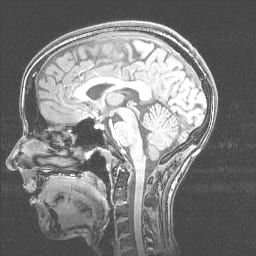Intelligence — we've all heard this word, but what exactly does it mean? Intelligence can be broadly defined as the ability to learn, reason, and problem solve. While many will point to environmental factors having a major influence (and they do), there is a genetic and hereditary component to intelligence as well. As a considerable amount of the variation in intelligence is heritable, scientists have long searched for the biological differences that might account for them.
Scientists have started to tease apart the biological basis of intelligence in recent years. Neuroscientists have used imaging techniques to correlate specific areas of the brain and corresponding brain activity with specific types of intelligence that individuals have or express (i.e. bodily intelligence, mathematical intelligence, linguistic intelligence, naturalistic intelligence, etc.) They can then use this information as a model that can relate individual differences in specific areas of intelligence to increased areas of activity in specific areas of the brain, elucidating areas or pathways of the brain involved in certain functions.

While some scientists are mapping intelligence to areas in the brain, others are trying to map intelligence to specific areas of the genome. Another study looked at the genome of ~80,000 individuals and identified approximately 50 genes that may be associated with intelligence. Now armed with a set of specific genes that are associated with intelligence, scientists can take the next step and look at the function of these specific genes and try to determine what role they might be playing.
While you read and learn about these findings in the news, it must be noted that almost all of this information discovered so far is correlative, not causative. Nobody yet has actually tested to see if differences in brain activity or gene composition are what truly causes differences in intelligence. It's hard to experiment on these in mice, let alone humans for a plethora of ethical reasons. Many experiments that would perturb these pathways to study result in death or severe mental defects. For all the rapid recent progress in this field, we may not know causation for many more years.

Studying intelligence may serve the greater good; for example, studying cognitive development in toddlers, or the mental decline associated with Alzheimer’s disease. However, there is potential for misuse of this information for a controversial outcome.
As with all research of this kind, there are many ethical and safety questions that must be considered. Balancing the natural goodness of this research, the potential to answer questions about a myriad of neurological disorders, against the potential misuse is key. If found, screening for genetic markers of intelligence could be used to select for more “intelligent†babies. If parents use IVF to conceive, then use of a genetic test (an extension of the screening tests that are currently used for genetic diseases that are already regularly conducted), could let a couple pick the smartest genome from the batch. This is eerily reminiscent of the eugenics movement I described in my previous blog.
Featured image credit: SciTechTrend via Flickr
 Kush Bhatia is a PhD student in the Department of Genetics at the University of Georgia. In his spare time, he loves reading, drinking coffee, cooking, and gaming of all kinds. He also enjoys working with some high school STEM student organizations, such as the Technology Student Association. More from Kush Bhatia.
Kush Bhatia is a PhD student in the Department of Genetics at the University of Georgia. In his spare time, he loves reading, drinking coffee, cooking, and gaming of all kinds. He also enjoys working with some high school STEM student organizations, such as the Technology Student Association. More from Kush Bhatia.
About the Author
- athenssciencecafehttps://athensscienceobserver.com/author/athenssciencecafe/April 17, 2020
- athenssciencecafehttps://athensscienceobserver.com/author/athenssciencecafe/April 12, 2020
- athenssciencecafehttps://athensscienceobserver.com/author/athenssciencecafe/April 3, 2020
- athenssciencecafehttps://athensscienceobserver.com/author/athenssciencecafe/March 30, 2020







